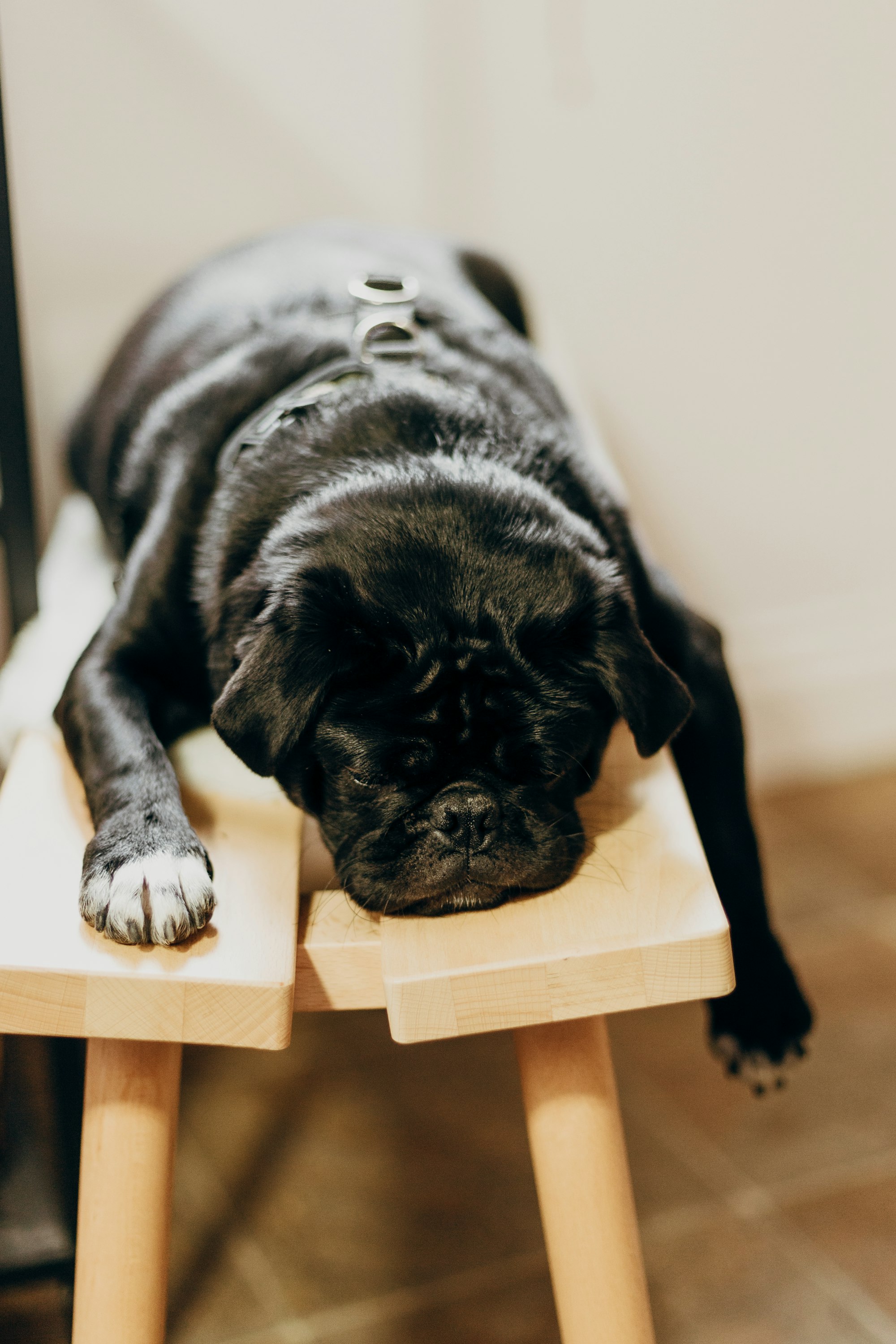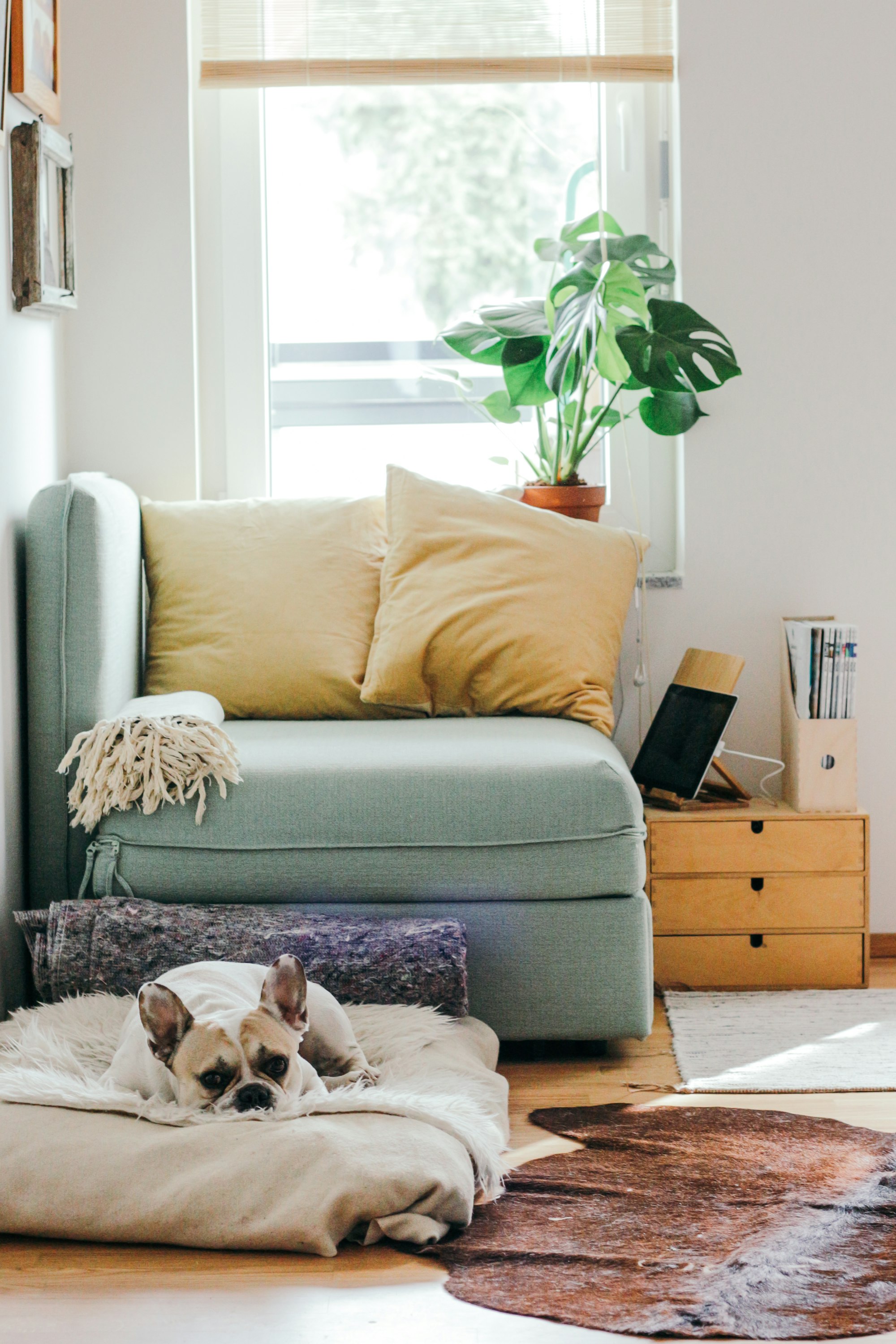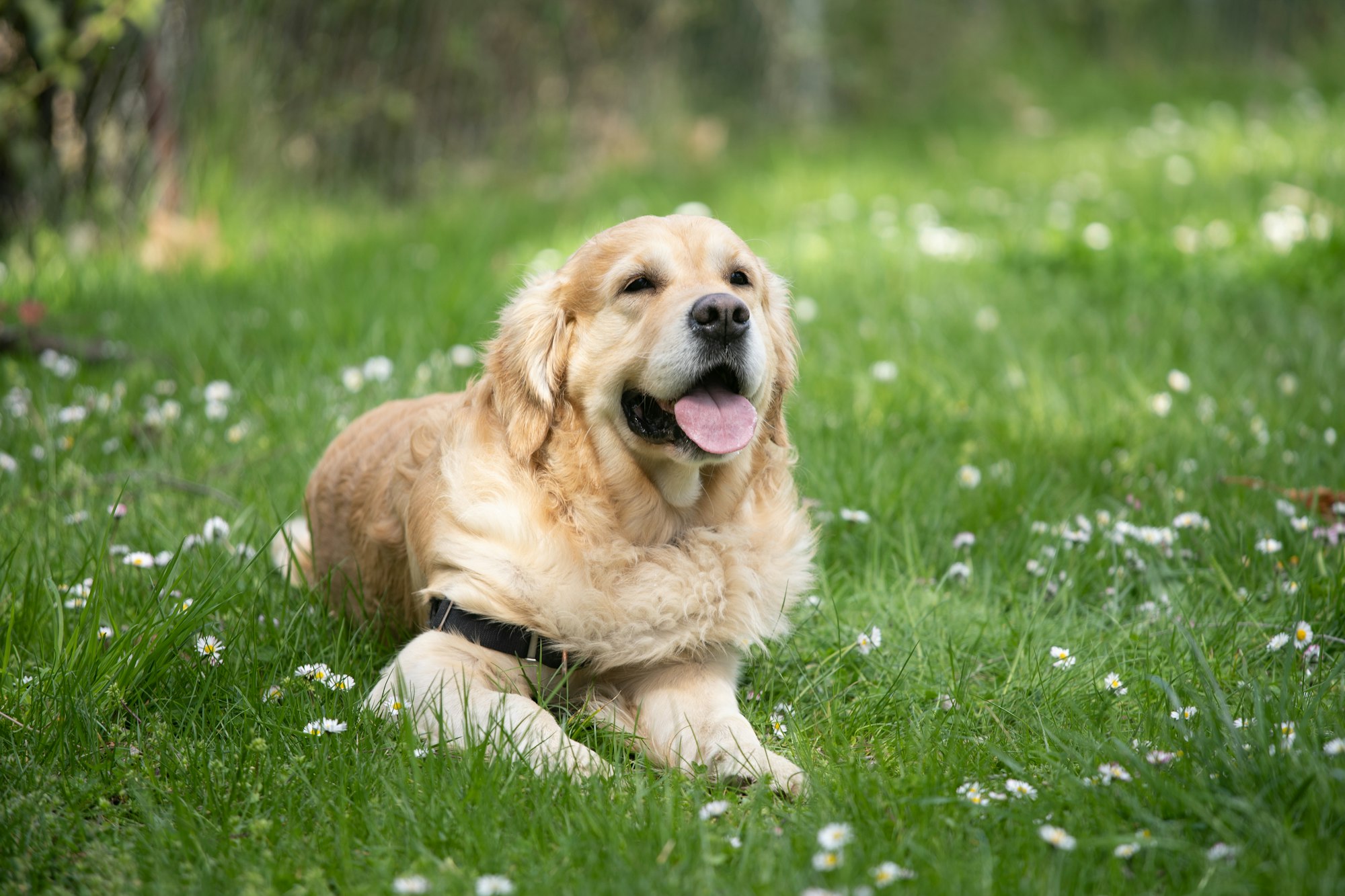Dogs have a strange habit of licking their paws before bed. We often ask why they do this seemingly random activity. There's no single answer, but several factors could be involved.
One idea is that they're cleaning themselves. Paws pick up dirt and debris all day. Licking can help remove the particles, like we clean our hands before sleeping.
They could also be grooming. Sweat glands are on their paws, and licking may spread scent to other parts of their body. It might provide comfort and relieve itchiness too.
Experts think it could be a self-soothing behavior. Like us, if stressed or anxious, dogs may use paw-licking to calm down before sleep.
Tip: Contact a vet if your dog's excessive paw-licking causes irritation or infection. They'll find out what's causing it and suggest treatment options.
Why do dogs lick their paws before bed?
To understand why dogs lick their paws before bed, delve into the instinctual nature of dogs, their self-grooming behavior, and possible underlying reasons. Explore how these factors contribute to this common canine habit, shedding light on the curiosity surrounding this behavior.
The instinctual nature of dogs
Dogs possess a distinctive innate instinct. This drives some of their actions, such as licking their paws at bedtime. It may look like a straightforward, harmless habit, yet there's more to it.
One potential explanation: cleaning. Licking is part of their self-grooming routine. They clean their paws, removing dirt, trash, and other undesired substances that may have collected there.
Another possibility: sweat glands in their paws. When they're hot or anxious, these glands release moisture. Licking the paws helps dogs cool down and relax before sleep.
Stress or anxiety can also explain this behavior. When worried or distressed, paw-licking can provide comfort.
Finally, medical reasons must not be disregarded. Allergies, infections, parasites, or injuries can cause pain, and licking is a way to relieve it. If your dog licks their paws too much, consult a vet to investigate further.
Self-grooming behavior
Dogs may lick their paws to cleanse themselves, removing dirt and any odors that have built up. It also soothes any itchy areas, as saliva has natural healing properties. Furthermore, they can mark their territory with scent glands in their paws.
However, self-grooming can be a sign of anxiety. Here's how to help:
- Regular grooming can reduce paw licking.
- Consult a vet for any underlying medical issues.
- Interactive play and puzzle toys can help reduce anxiety.
By understanding why dogs do this and implementing strategies, you can promote their well-being and create a comfortable bedtime routine.

Possible underlying reasons
Dogs may lick their paws before bed for different reasons. Let's explore them in more detail.
One potential cause is hygiene. Dogs are usually tidy animals and may lick their paws to keep them clean and free from dirt or debris.
Itching and irritation may also be the culprit. Licking could be a response to itchy or irritated skin on the paws, maybe because of allergies, insect bites, or fungal infections.
Self-soothing is another possible reason. Licking could give dogs a sense of comfort and relaxation, just like how humans might bite their nails or chew on a pen when feeling stressed or anxious.
Behavioral habits may also be the cause. Dogs may develop a habit of paw licking as a form of self-stimulation or to gain attention from their owners. This could be due to boredom, anxiety, or even for attention.
Medical conditions may be involved as well. Arthritis or joint pain may cause dogs to lick their paws to relieve discomfort. It's worth remembering that too much paw licking might point to an underlying health issue. If this behavior continues, it is best to consult a vet.
Plus, sweat glands in the paws may be another factor. Licking may help regulate body temperature.
According to Dr. Smith from the Veterinary Medical Center in XYZ City, if left untreated, frequent paw licking can lead to secondary infections.
With an understanding of the potential reasons behind this behavior, we can better take care of our canine companions' health and well-being.

How to address excessive paw licking
To address excessive paw licking before bed, follow these steps: Determine the cause, rule out medical issues, keep the paws clean and moisturized, provide distractions and mental stimulation, and consult a veterinarian if necessary.
Step 1: Determine the cause
To figure out why your pet is licking their paws too much, follow these 6 steps:
- Watch their behavior. Check when they start to lick constantly and if there are any patterns or triggers.
- Examine their paws for any injuries, e.g. cuts or abrasions. Also, take note of any swelling or redness.
- Your vet can help you check if allergies might be the cause. Allergy tests may be necessary.
- Pets groom too much when bored or anxious. Provide them with exercise and entertainment to help.
- Certain infections and hormonal imbalances can cause excessive licking. Visit your vet to rule these out.
- Check your pet's diet and nutrition. Make sure they're getting the right balance of nutrients.
By following these steps, you'll know what's causing the problem and be able to help your pet. Don't let them suffer in silence - take action now!
Step 2: Rule out medical issues
If your furry pal is always licking their paws, you must investigate if a medical problem is causing it. Here's a three-step guide:
- See a vet: Make an appointment and talk about the licking. Your vet will examine them and may order tests.
- Allergy test: Allergies often cause paw licking. Ask your vet to test for food, environmental, or other allergies.
- Check other causes: Other than allergies, fungal infections, parasites, or arthritis can cause paw licking. Ask your vet to check for these.
It's necessary to find out what's causing the licking, for successful treatment and management.
Pro Tip: Note when the licking starts and what they did before. This info will help your vet diagnose it.
Step 3: Keep the paws clean and moisturized
Proper paw care is key to reducing excessive licking. Here's a 3-step guide to keep their paws clean and moisturized.
- Step 1: Clean Regularly. Use lukewarm water and a soft cloth or sponge to remove dirt, debris, and irritants. Be gentle and thorough.
- Step 2: Moisturize with Pet-Safe Products. After cleaning, use pet-safe products formulated for paw care. Massage a small amount of moisturizer onto the pads for better absorption.
- Step 3: Consider Protective Measures. Booties can shield their paws from hot pavement, ice, or rough surfaces. Additionally, paw balm can provide an extra layer of protection.
In addition to this guide, trim nails regularly and feed a balanced diet with vitamins and minerals for optimal paw health. With regular care, you can help your furry friend stay happy and healthy.
Step 4: Provide distractions and mental stimulation
To address excessive paw licking, distractions and mental stimulation are key. Engage your pet's mind and offer alternative activities to draw their attention away. Introduce puzzle toys and rotate them regularly. Play hide-and-seek with treats or toys. Use treat-dispensing toys and engage in scent training. Provide daily training sessions too. For extra stimulation, use food puzzles and freeze treats in ice cubes. These activities can help boredom and reduce excessive licking.
Offer your pet an enriching life without the urge to lick! Take action now!
Step 5: Consult a veterinarian if necessary
If your pet's licking of their paws keeps going on, it's time to get help from an expert. A vet can give you advice that is just perfect for your pet. Here is a 6-step plan for consulting a veterinarian:
- Look for vets in the area who are good at skin and allergies.
- Book an appointment at the clinic that fits your pet best.
- Get ready by gathering information about your pet's health, food, and environment.
- Tell the vet about your pet's paw licking in detail.
- Listen to what the vet recommends - like tests or treatment.
- Follow their advice.
Don't forget - each pet is different. So, it is important to give the vet all the info they need. Extra tips:
- Watch for changes in your pet and tell the vet.
- Ask questions if you need to.
- Stick to the medication plan and follow-up visits.
By speaking to a vet, you can get their help and make sure you do all you can to keep your pet healthy.
Conclusion
Dogs licking their paws before bed can be a mystery to their owners. It's a combination of factors. One reason may be they're grooming themselves - they have an instinct to stay clean. It might also be self-soothing - like humans, dogs often repeat behaviors when stressed. Lastly, it could be a sign of an underlying health issue, so it's important to talk to your vet if there's excessive licking or discomfort.
I had a Labrador Retriever called Max who only licked his paws when anxious. It was separation anxiety, so we used training and therapy to help him. This reduced his paw licking habit.

Frequently Asked Questions
1. Why do dogs lick their paws before bed?
Dogs lick their paws before bed for several reasons. One common reason is that they are grooming themselves. Dogs lick their paws to clean off any dirt or debris that may have accumulated during the day. Additionally, licking can be a self-soothing behavior, helping them relax before going to sleep.
2. Is it normal for dogs to lick their paws before bed?
Yes, it is generally normal for dogs to lick their paws before bed. As mentioned earlier, it is a way for them to groom themselves and remove any dirt or debris. However, excessive licking may indicate an underlying issue, such as allergies or skin irritation, and should be addressed by a veterinarian.
3. Can licking paws before bed be a sign of anxiety?
Yes, excessive licking of the paws before bed can sometimes be a sign of anxiety in dogs. Some dogs engage in repetitive behaviors, like excessive licking, as a way to cope with stress or anxiety. If you notice your dog excessively licking their paws or showing other signs of anxiety, it is recommended to consult with a professional to determine the cause and appropriate treatment.
4. Should I be concerned if my dog constantly licks their paws before bed?
If your dog constantly licks their paws before bed, it may be a cause for concern. While occasional paw licking is normal, excessive and persistent licking can indicate an underlying issue. Allergies, skin infections, dry skin, or even pain could be contributing factors. It's advisable to have your dog evaluated by a veterinarian to rule out any potential health problems.
5. How can I prevent my dog from licking their paws excessively before bed?
To prevent excessive paw licking before bed, it's important to address the underlying cause. Regular grooming and maintaining clean surroundings can reduce the amount of dirt and debris that may trigger the behavior. If allergies or skin irritation are suspected, dietary changes or allergy medication may be recommended. Behavioral modification techniques and providing your dog with ample mental and physical stimulation can also help reduce anxiety-induced paw licking.
6. Are there any home remedies to alleviate paw licking in dogs before bed?
While it's essential to identify and address the underlying cause of paw licking, some home remedies may provide temporary relief. These include using a cone collar to prevent licking, applying an anti-lick spray or bitter-tasting deterrent to the paws, keeping the paws clean and dry, providing distractions to redirect their focus, and ensuring your dog has a comfortable and stress-free sleep environment.